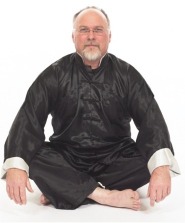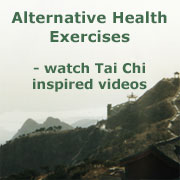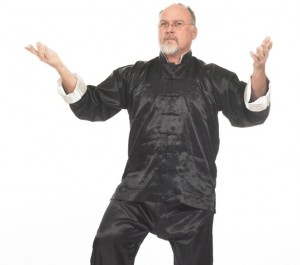 Once again we are holding a 2 day seminar on Chen style Tai Chi at The Letchworth Centre for Healthy Living on Tues and Weds 27th and 28th August – this year it will cover a wide range of subjects from basic exercises through Chi Kung standing into Silk Reeling and the Chen Laojia 74 posture form – we may also take the opportunity for some partner work.
Once again we are holding a 2 day seminar on Chen style Tai Chi at The Letchworth Centre for Healthy Living on Tues and Weds 27th and 28th August – this year it will cover a wide range of subjects from basic exercises through Chi Kung standing into Silk Reeling and the Chen Laojia 74 posture form – we may also take the opportunity for some partner work.
Beginners are welcome – but should appreciate that this workshop is really suited to existing students or people with some experience of Tai Chi practice – students from other styles may find this a valuable introduction to Chen style and given the format students may chose to attend one or both days. Times are 10-4 pm both days. Cost is £100 for 2 days, £60 for one day.
To book your place on the course please contact reception at The Letchworth Centre.
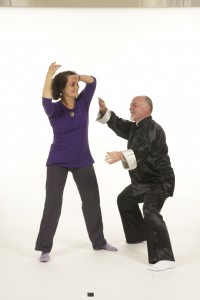 Spirals are everywhere in nature – in plants and trees, in the flowing and eddying of air and water, and of course in the human body. Even structures that appear straight, like the long bones of the arms and legs – so it is no surprise that spirals exist in the natural movement of Tai Chi and Alexander Technique.
Spirals are everywhere in nature – in plants and trees, in the flowing and eddying of air and water, and of course in the human body. Even structures that appear straight, like the long bones of the arms and legs – so it is no surprise that spirals exist in the natural movement of Tai Chi and Alexander Technique.
Our seminar on 4 August allows us to explore where they exist and how we feel them, as well as how we can develop and use them. We expect to find that spirals in movement are essential to promoting good health, good posture and good habits of body usage.
So do come and join us at The Letchworth Centre for Healthy Living at 10.00 am to 4.00 pm on August 4th – contact the centre to reserve your place on this seminar.
 This year again we will be running our Tai Chi for Golf classes at The Letchworth Centre for Healthy Living – one participant last year was kind enough to comment:
This year again we will be running our Tai Chi for Golf classes at The Letchworth Centre for Healthy Living – one participant last year was kind enough to comment:
“Ian’s Tai Chi for Golf sessions have improved my flexibility and helped me to focus on developing a more rhythmic, flowing golf swing. The similarities between the golf swing and Tai Chi movements are fascinating. I played one of my best ever rounds after the third session!”
Ian remains as enthusiastic about his own Golf and continues to find ever more links between the two activities from posture to movement and mindset.
Classes are in 5 weekly sessions:
Thursday 25th July
Thursday 1st, 8th & 29th August,
Thursday 5th September 2013
Time: 8-9pm
Cost: £5.00 per session
Venue: The Letchworth Centre for Healthy Living,
Rosehill Hospital, Hitchin, SG6 3NA
To book: call 01462 678804, e-mail: [email protected]
www.letchworth centre.org

We are launching a new program of beginners classes after the half term at The Courtyard Centre Biggleswade – with a free taster session followed by a full 6 week course on both Monday mornings and Tuesday evenings.
So come and try for free on the 3rd or the 4th – existing students also get a freebie!
Monday morning 3 June 9.30 to 10.30 – free taster followed by Monday 10 June to 15 July – 6 week program
Tues evening 4 June 7.30 to 9.00 – free taster session – followed by Tues 11 June to 16 July – 6 week program
Please contact The Courtyard Centre for further details etc.
Update – please note we are no longer running classes in Biggleswade – please see our main classes page for up to date information.
The new beginners classes at the Courtyard Centre, Biggleswade, have gone really well – we had lots of interest and have been able to cover quite a bit of territory – in part aided by my return from the Chen Village, origin of Tai Chi – and partly because of the variety of new students – varying from long-time practitioners to complete newcomers.
Response has been very positive with a fair amount of discussion as well as practice – reminder to self – talk less, practice more!
Daytime classes at the Courtyard Centre
Monday classes have gone extremely well with many students turning out for a 9.30am session – perhaps encouraged by the thought of a coffee and cake in the café afterwards!
Evening classes at the Courtyard Centre
Tuesday evening classes have been very interesting with the group progressing though basic exercises to the early postures of Laojia form.
We still have space left in both daytime and evening classes – and the centre is offering some super deals.
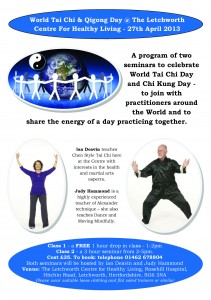 We had a lovely time doing Tai Chi last year at The Letchworth Centre for Healthy Living – so this year we have opened it up a little – I am joined by the most excellent and enthusiastic Judy Hammond who adds a delightful energy to our study of Tai Chi movement from her work in her classes for Moving Mindfully and Alexander Technique – which are so very compatible whith the Tai Chi/Chi Kung models.
We had a lovely time doing Tai Chi last year at The Letchworth Centre for Healthy Living – so this year we have opened it up a little – I am joined by the most excellent and enthusiastic Judy Hammond who adds a delightful energy to our study of Tai Chi movement from her work in her classes for Moving Mindfully and Alexander Technique – which are so very compatible whith the Tai Chi/Chi Kung models.
Plus this year we have expanded the program so that now we have two seminars on Saturday 27th April – a FREE 1 hour seminar from 1.00pm to 2.00pm – followed by a 3 hour seminar from 2.00pm to 5.00pm at a cost of £35.
Contact The Letchworth Centre to book your place.
Update – please note we are no longer running these classes – for up to date information on other classes please see our main classes page.
I am delighted to soon be running classes at The Courtyard Centre in Biggleswade with a Grand Opening Day on Saturday 16 March – followed by daytime and evening classes commencing Monday 8 th April:
Open day free Tai Chi Taster @ 11.00 am
Monday daytime classes from April 8th @ 9.30 – 11.00 am
Tuesday evening classes from April 9th @ 7.30 – 9.00 pm
Contact The Courtyard Centre for more information and bookings.
Browsing through Youtube the other day I came across some interesting clips of Master Chen Xiaowang, the Chen village and Master Chen Bing – they are all on the video links pages of our website.
I was asked this question recently and thought it a very sensible one – given the health orientation of Chi Kung and a similar orientation of most people who come to Tai Chi classes, at least with me. So after some consideration my answer was as follows:
Chi Kung ( energy work ) is about learning to move energy around the body in a way beneficial to health – this energy work involves a high degree of body awareness and the ability to adjust internal tensions, posture and the relationships of body parts both statically and in movement.
Tai Chi – is a form of Chi Kung – but also develops the movement aspect further toward principles such as balance, structure, sensitivity, internal power etc. which are of value both in health and in martial arts.
So in early Tai Chi training we focus very much on good healthy body movement based on Tai Chi principles, which can then be extended if desired into the martial art of Tai Chi Chuan.
Considering the practice of visualisation and how we use it to envision our embodied selves in the world, it would make sense to understand that the visualisations we use work best if they correspond accurately with the physical world, and contrarilly if our physical practice is congruent with our vision.
This congruence creates confidence, as seeing our vision operate in the real world confirms our understanding.
So we can use our intellectual understanding derived from the writings, videos etc of the Tai Chi masters to create visions of what our Tai Chi could be – but we anchor these visions in the reality of where we are now – then we practice in ways which are congruent with developing along the path between them – even if we do not at present understand that path – only exploring and observing. We arrange our practice in a way that reinforces our vision and then use the feedback to modify the vision – so ensuring continuing development and developing an embodied understanding.
 Once again we are holding a 2 day seminar on Chen style Tai Chi at The Letchworth Centre for Healthy Living on Tues and Weds 27th and 28th August – this year it will cover a wide range of subjects from basic exercises through Chi Kung standing into Silk Reeling and the Chen Laojia 74 posture form – we may also take the opportunity for some partner work.
Once again we are holding a 2 day seminar on Chen style Tai Chi at The Letchworth Centre for Healthy Living on Tues and Weds 27th and 28th August – this year it will cover a wide range of subjects from basic exercises through Chi Kung standing into Silk Reeling and the Chen Laojia 74 posture form – we may also take the opportunity for some partner work.




